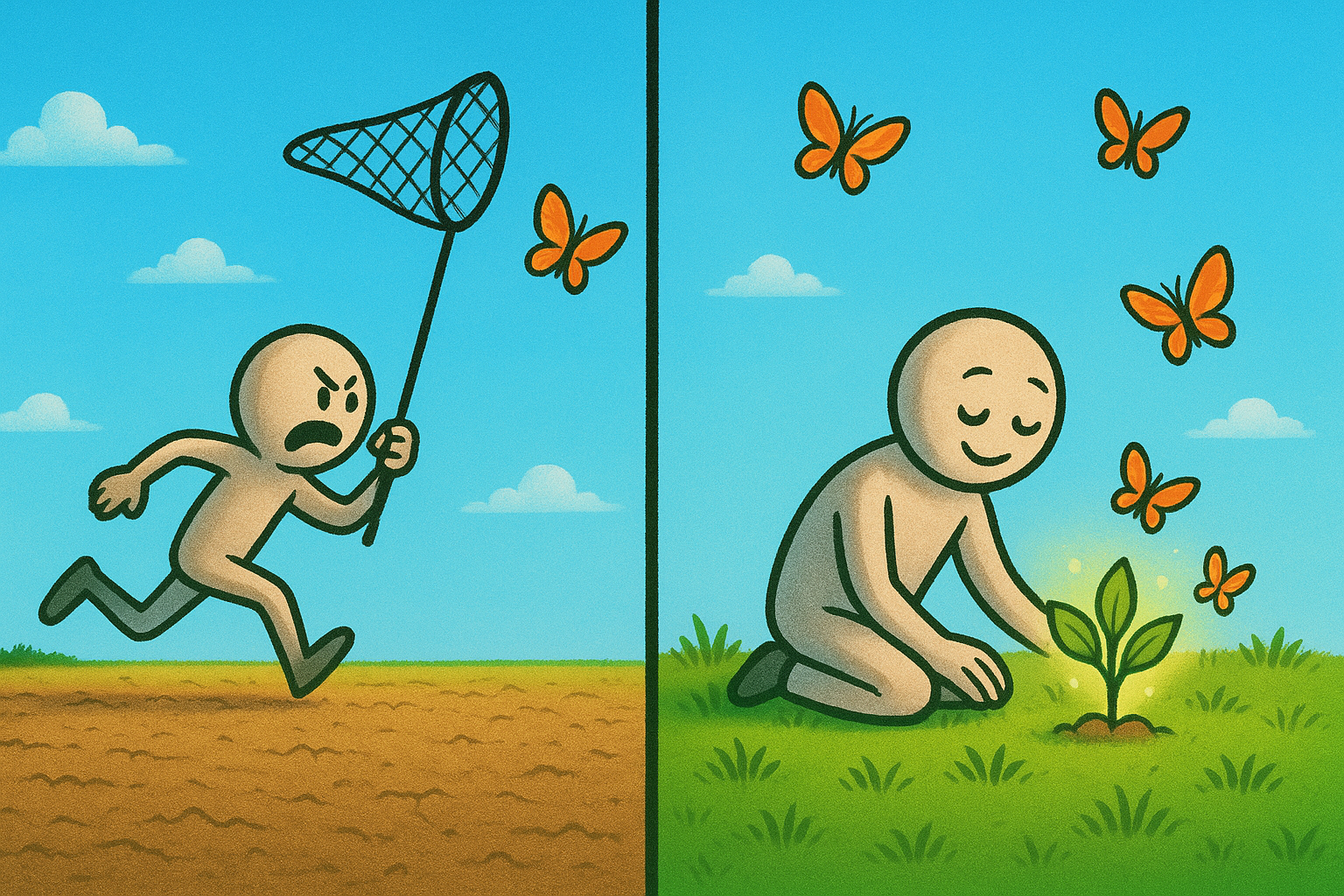On Passion, Progress, and Enough


Lately, I’ve been thinking about progress—what it means, how we define it, and maybe more importantly, when is enough, enough?
It started while reading and hearing critiques of AI and its exploding energy use. There’s this recurring question: Is this really progress, or just acceleration? When does innovation stop feeling like growth and start to feel like overreach?
We tend to assume everyone wants progress, but I’m realizing that what we call progress depends entirely on the lens we’re looking through. And even more confusing: we often chase it based on how we feel about it in the moment.
But here’s a quiet truth I keep bumping into—progress doesn’t usually feel good while it’s happening. Starting a difficult task, taking the first step, writing the first sentence—that rarely feels good in the moment. In fact, a lot of progress builds on doing things regardless of how you feel. And weirdly, that’s what ends up feeling good after the fact. The sensation of progress follows action, not the other way around. So if we wait until we feel ready or inspired, we rarely begin. And if we confuse the feeling of passion with the experience of progress, we stay stuck.
That got me thinking about passion itself, and how we use that word to justify or glorify almost anything. But not all passions are the same. Some are about the act itself—playing a guitar, hiking a ridgeline, painting with no planned result. These don’t require outcomes. They’re about presence. Let’s call them immersive passions. Others are goal-bound, productive, externally visible—building a company, writing a book, training for a marathon. These expressive passions are about making, achieving, or completing something.
I wonder if part of the reason we get confused or disappointed by our passions is because we treat immersive ones like they should have results, and treat expressive ones like they should always feel good. They’re different animals. One fills you in the moment. The other gives shape to your days.
But then the bigger question: how much of our time should go to either one? How do we know we’re allocating ourselves wisely?
Because yeah, too much time chasing achievement can pull us away from the profoundly ordinary parts of life that make it meaningful—like connection, family, boredom, rest. And yet, too much drifting without direction can leave us untethered, lacking purpose. So where’s the line?
That’s the tension I’m trying to name. Passion is not always the compass we think it is. It’s powerful, yes—but it needs anchoring into something. Something beyond novelty or ego or external recognition. And progress, too, needs context. Are we progressing toward something that matters—or are we just building for the sake of building?
So maybe the more helpful question isn’t “What’s your passion?” or “What are you progressing toward?” but “What are you practicing?” What are the daily habits that shape your life, not because they feel good in the moment, but because they pull you toward something you believe in?
Maybe that’s the missing piece. Passion gives us energy. Progress gives us direction. But habit is what actually gets us there.
And habit is honest. It doesn’t care how inspired you are that day. It’s the invisible scaffolding that lets both passion and progress have a shot at becoming something real.
But even with habits in place, we still have to choose how to spend ourselves and our time. Because we only get so many hours. And at some point, we all have to ask: Am I building something just because I can—or because it matters? Is my pursuit still connected to what I care about? Or am I hiding in the comfort of doing?
And maybe the real question isn’t “When is enough enough?” but “Are we still aligned with what we care about?” If we’re not, then maybe more isn’t the answer. Maybe less, or different, or deeper is.
Once we know where we’re headed—what we value, what matters—the rest is practice. Habits give shape to that direction. They make it real. They free us from waiting for motivation or clarity and instead teach us to move with consistency. And in that movement, we don’t just make progress—we become the kind of person who lives their passions, rather than chases them. Fulfillment comes not from trying to feel passionate, but from doing the work that builds meaning over time. Passion isn’t the spark that starts the fire—it’s the warmth that rises after tending it, day after day.
This is the first in a 3 part series:
Inspired? Let’s explore how we can bring these concepts to your team.